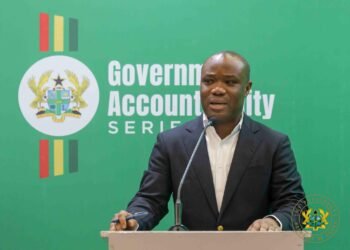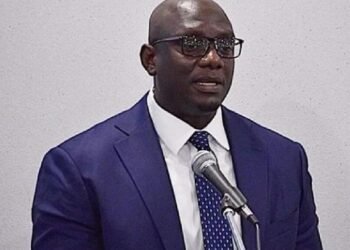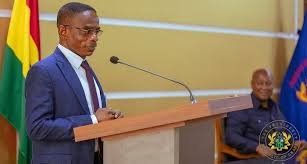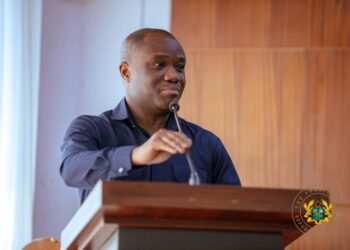President John Dramani Mahama has taken a bold step towards promoting transparency and accountability in governance by publicly declaring his assets at the Jubilee House.
This unprecedented move, aimed at enhancing trust in public office, has reignited discussions about the effectiveness of Ghana’s asset declaration regime and the need for constitutional reforms.
Addressing government officials, members of the media, and the Auditor General’s department, President Mahama emphasized the constitutional mandate on asset declaration as stipulated under Article 286 of the 1992 Constitution and the Public Office Holders (Declaration of Assets and Disqualification) Act, 1998 (Act 550).
He underscored the importance of compliance among public officials, including the President, Vice President, Ministers, Deputy Ministers, Members of Parliament, judges, members of the Council of State and Chief Executives of public corporations
“There are many people in public office who do not know that they are covered under the asset declaration regime. And so, Auditor General, there must be a reminder to all these people that they are covered under the asset declaration regime”.
President John Dramani Mahama
President Mahama highlighted that asset declaration in Ghana has often been conducted in secrecy, making it difficult to measure compliance.
By choosing to present his forms publicly, he seeks to introduce openness into the process and set an example for all public office holders, especially those he will appoint in his administration.
“I have taken this step to send an unmistakable signal to all public office holders, especially those that I have appointed, that I take the declaration of assets very seriously and expect full compliance from them”.
President John Dramani Mahama
To enforce this, President Mahama indicated that he has already instructed his Chief of Staff to notify all his appointees that they must declare their assets by March 31, 2025.
He warned that any appointee who fails to meet the deadline will face severe sanctions, including possible removal from office.
‘Charity they say begins at home. I’m therefore determined to take the necessary steps to ensure that we fight corruption vigorously so that the precious little resources that have been entrusted to us by the Ghanaian people are used only in their interest.”
President John Dramani Mahama
Strengthening the Asset Declaration Regime to Curb Corruption
While acknowledging that punishing corruption is essential, President Mahama emphasized that preventing it is a more sustainable solution.
He expressed his belief that if properly implemented, the asset declaration process could be a potent tool in the fight against corruption.
“Corruption thrives under the cover of darkness. The more light that is shone on it, the more likely it will be fought successfully,” he noted. President Mahama called for reforms that would require declared assets to be published before and after public office.
“We must take advantage of the current constitution review process to strengthen the assets declaration regime to make it more relevant to changing times. I believe that we must move to a regime where the assets so declared can be published before and after public office.
“So that the phenomenon of unexplained and overnight wealth obviously and through the proceeds of corruption can be checked. I trust that a healthy debate can be had over this issue and consensus built on the way forward.”
President John Dramani Mahama
This, he believes, would help curb the phenomenon of unexplained and overnight wealth accumulation.

Auditor General’s Response and Support for Reforms
In response, Johnson Akuamoh Asiedu, Auditor General of Ghana, welcomed President Mahama’s initiative and echoed the call for constitutional reforms.
He acknowledged that the current asset declaration process has limitations, particularly in verifying the accuracy of declarations.
“When a public official lists multiple bank accounts, how do we verify that those are the only accounts they have? If someone declares ownership of two buildings, how can we be certain that there aren’t more properties in their name?”.
Johnson Akuamoh Asiedu, Auditor General of Ghana
Mr Akuamoh Asiedu advocated for public disclosure of declared assets, both at the beginning and end of public office, to enhance accountability.
“If you submit your asset declaration forms, you should be able to publish them freely. And when you leave office, those records should be made public so we can assess any changes”.
Johnson Akuamoh Asiedu, Auditor General of Ghana
He assured that the Audit Service is committed to supporting the proposed reforms and working towards a more transparent governance system. “We welcome His Excellency’s wonderful idea, and whatever we can do to support, we will do,” he concluded.
President Mahama’s initiative positions him as a leader committed to transparency and accountability. His call for constitutional reforms, enforcement of compliance, and greater transparency could redefine how public officials handle asset declaration.
READ ALSO: Ghana’s Anti-Corruption Efforts Wane as its CPI Score Declines























